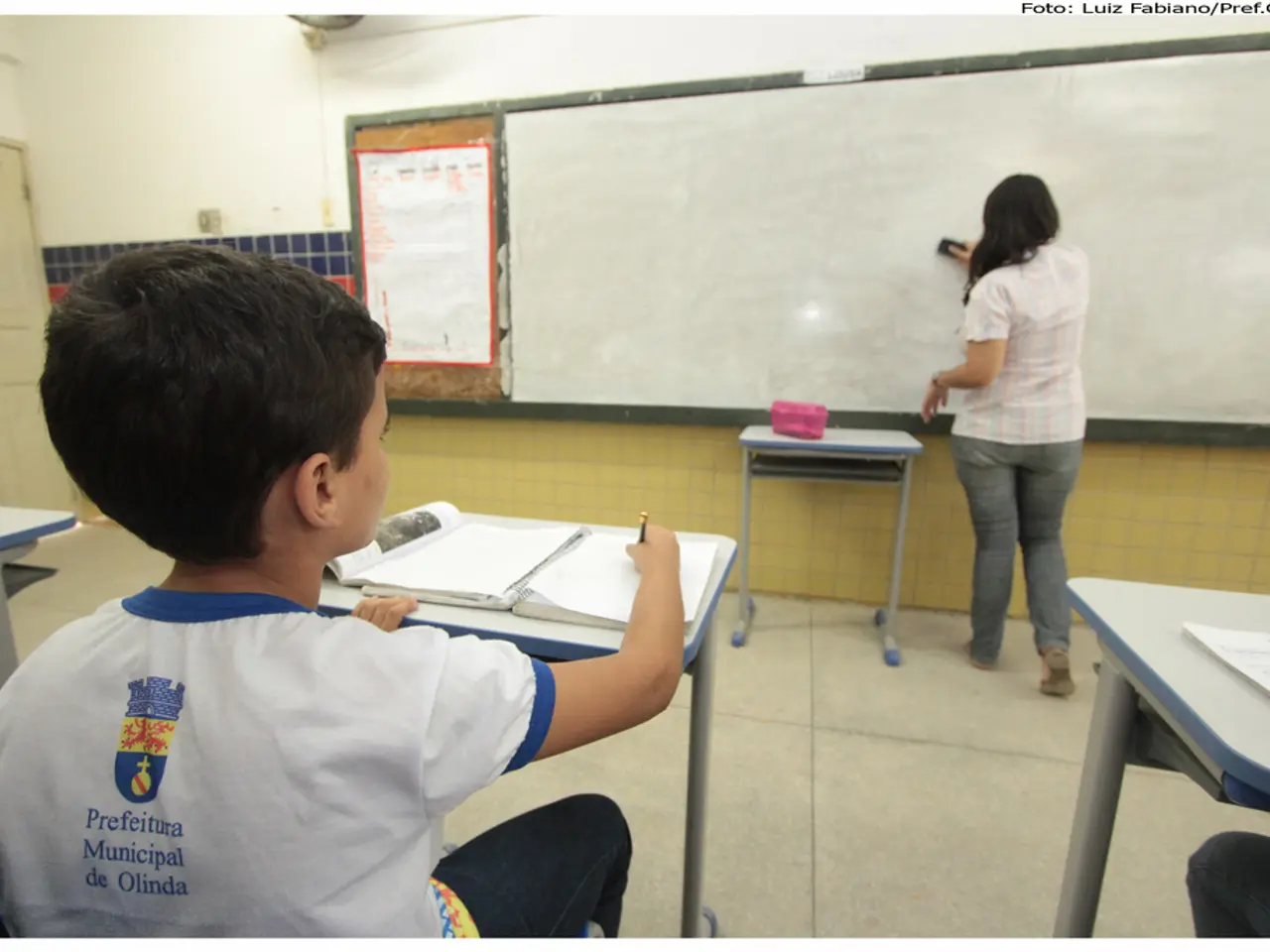Transforming Examinees into Examiners: Enhancing India's Educational Evaluation Capability
In the bustling landscape of India's education system, a significant shift is underway. With over 2.3 million candidates participating in the National Eligibility cum Entrance Test (NEET-UG) in 2024, the need for a robust and fair assessment system has never been more pressing.
However, the year was marred by allegations of paper leaks and scoring inconsistencies, which eroded public trust. Protests and petitions demanded a cancellation or re-exam, highlighting the need for reform.
To address these concerns, the government formed a high-level committee to recommend changes and enacted the Public Examinations (Prevention of Unfair Means) Act 2024. This legislation aims to curb malpractice in competitive exams, ensuring a level playing field for all candidates.
Recognising the importance of formal training, a master's programme in educational assessment was proposed. This initiative seeks to build expertise in India, equipping professionals with the skills to design and implement fair and effective assessments.
The Azim Premji University in Bengaluru took the lead, introducing the first master's program in educational assessment in 2024. The programmes emphasise communication skills and practical experience, ensuring graduates can effectively convey technical assessment concepts to diverse stakeholders.
Collaboration with departments like computer science, statistics, psychology, and public policy is crucial for modern assessments. Universities would leverage their own internal examination and data systems as training grounds for students, providing hands-on experience.
Beyond metropolitan cities, establishing these programmes and offering flexible admission pathways would create a more diverse pool of assessment professionals. This diversity would lead to better representation and culturally relevant assessments, ensuring that all students are evaluated fairly.
The proposed programme covers educational theories, core measurement principles, and advanced courses in measurement, research, and psychometrics. It also trains specialists in different areas, including psychometric and statistical methods, assessment policy, accountability, accessibility, and cultural relevance.
Similar concerns about validity and fairness have been raised about other exams like the University Grants Commission-National Eligibility Test (UGC-NET) and various state recruitment tests. As India moves towards a more sophisticated and equitable assessment system, these concerns must be addressed to ensure a credible and fair system where students are evaluated on their merit.
Investing in formal training is crucial for ensuring a credible and fair system. As we look to the future, it is clear that India's education system is poised for transformation, with a new generation of assessment experts ready to lead the way.
Read also:
- Understanding Hemorrhagic Gastroenteritis: Key Facts
- Stopping Osteoporosis Treatment: Timeline Considerations
- Trump's Policies: Tariffs, AI, Surveillance, and Possible Martial Law
- Expanded Community Health Involvement by CK Birla Hospitals, Jaipur, Maintained Through Consistent Outreach Programs Across Rajasthan







